Search Images
Browse Content (p. 1354)
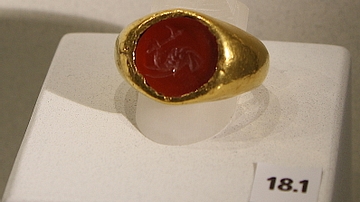
Image
Gold & Carnelian Ring, Tarentum
A gold and carnelian ring incised with an elephant holding a goad in its trunk. From Tarentum (Taranto), southern Italy. 1st century BCE. (Archaeological Museum of Taranto, Italy)
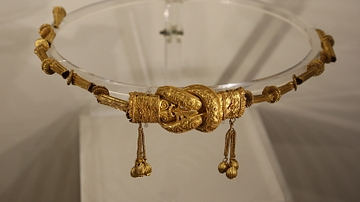
Image
Gold Diadem, Tarentum
A gold diadem with central knot of Hercules from Tarentum (Taranto), southern Italy. 4th century BCE. (Archaeological Museum of Taranto, Italy)
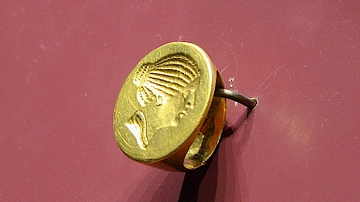
Image
Gold Ring, Tarentum
A gold ring with female head from Tarentum (Taranto), southern Italy. 4th century BCE. (Archaeological Museum of Taranto, Italy)
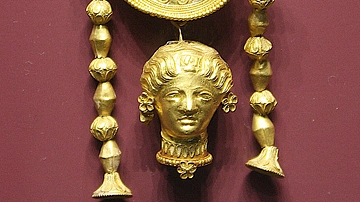
Image
Gold Earring, Tarentum
A gold pendant earring from Tarentum (Taranto), southern Italy. 4th century BCE. (Archaeological Museum of Taranto, Italy)
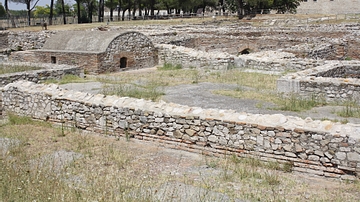
Image
Kilns, Roman Baths of Venusia
The remains of the kilns at the Roman baths at Venusia (modern Venosa), southern Italy. 2nd-3rd century CE.
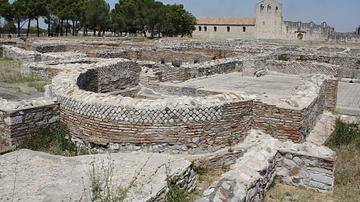
Image
Roman Baths, Venusia
The remains of the Roman baths at Venusia (modern Venosa), southern Italy. 2nd-3rd century CE.
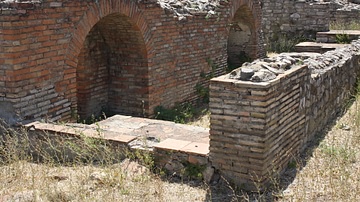
Image
Ovens, Roman Baths, Venusia
The remains of the ovens of the Roman baths at Venusia (modern Venosa), southern Italy. 2nd-3rd century CE.
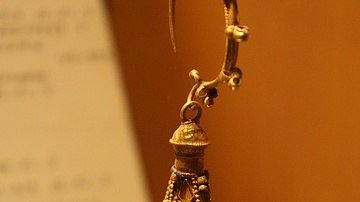
Image
Gold Pendant Earring, Venusia
A gold pendant earring with filigree decoration. Venusia, southern Italy, VII century CE.(Archaeological Museum of Venosa, Italy)
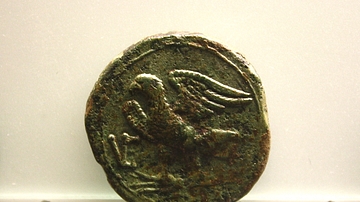
Image
Bronze Coin, Venusia
A Roman bronze coin of Venusia (modern Venosa), southern Italy. Eagle grasping three arrows and VE inscription. (Archaeological Museum of Venosa, Italy)

Image
Gold Filigree Earring, Herakleia
Gold and glass paste pendant earring with filigree and granulation. Acropolis, Herakleia, southern Italy. 1st century BCE. (Archaeological Museum of Siritide, Policoro, Italy)